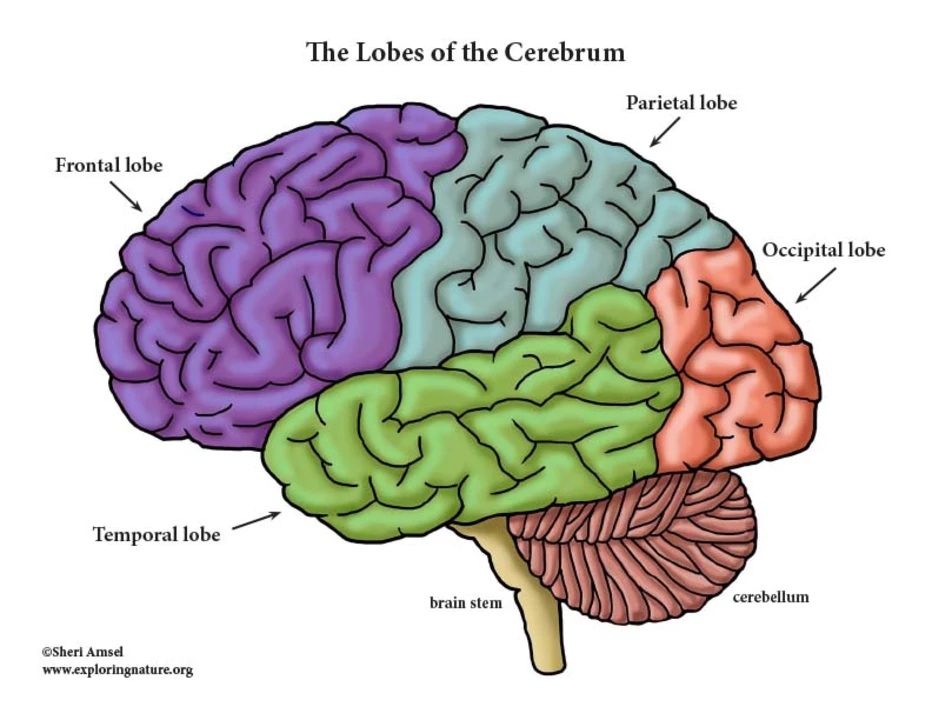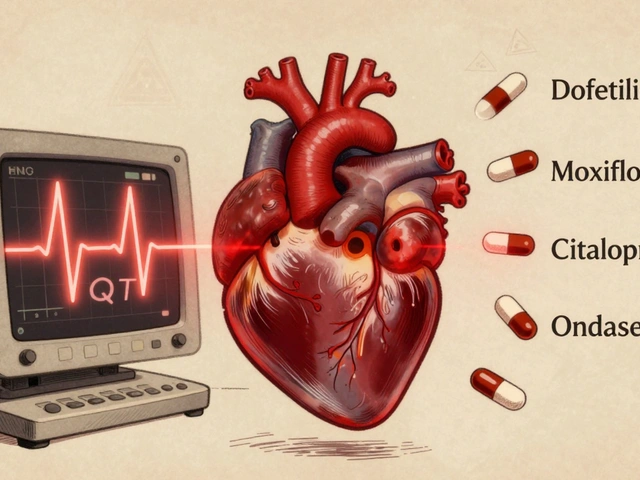The impact of nimodipine on cognitive function in the elderly
Understanding Nimodipine and Its Effects on Cognitive Function
As we age, it's not uncommon for our cognitive function to decline. This can lead to memory loss, difficulty concentrating, and other issues that can significantly impact our quality of life. Many researchers are looking for ways to slow down or even reverse this cognitive decline – one promising treatment option is nimodipine, a calcium channel blocker. In this article, we will explore the impact of nimodipine on cognitive function in the elderly and discuss various aspects of this treatment option.
The Science Behind Nimodipine and Cognitive Function
Nimodipine is a calcium channel blocker that works by inhibiting the influx of calcium ions into cells. This, in turn, helps to relax blood vessels and improve blood flow, particularly in the brain. Improved blood flow can lead to better oxygen and nutrient delivery to the brain, which may help support cognitive function.
Several studies have shown that nimodipine can improve cognitive function in both animal models and human participants. These improvements may be due to increased blood flow in the brain, reduced inflammation, and protection of brain cells from damage.
Nimodipine as a Potential Treatment for Alzheimer's Disease
Alzheimer's disease is a progressive neurodegenerative disorder that affects millions of people worldwide. It is the most common cause of dementia, and currently, there is no cure. However, research has shown that nimodipine may help slow the progression of Alzheimer's disease and improve cognitive function in those affected.
Studies have found that nimodipine can reduce the formation of amyloid plaques, which are a hallmark of Alzheimer's disease. It may also help to protect brain cells from the damage caused by these plaques, thereby slowing the progression of the disease and preserving cognitive function.
Enhancing Memory and Learning Abilities
One of the most significant areas of cognitive function that nimodipine has been shown to improve is memory and learning abilities. Elderly individuals who have taken nimodipine have demonstrated improvements in both short-term and long-term memory, as well as enhanced learning capabilities.
It is believed that nimodipine's ability to increase blood flow to the brain and protect brain cells plays a vital role in these improvements. This suggests that nimodipine may be an effective treatment option for age-related memory decline and cognitive impairment.
Improving Attention and Concentration
Another area where nimodipine can have a positive impact on cognitive function is attention and concentration. As we age, our ability to stay focused and maintain concentration on tasks can decline. This can be particularly frustrating and can significantly impact our daily lives.
Research has shown that nimodipine can improve attention and concentration in elderly individuals, making it easier for them to stay focused on tasks and complete them more efficiently. This improvement in attention may be due to the increased blood flow and oxygen delivery to the brain, which can help support cognitive function.
Reducing Symptoms of Depression and Anxiety
Depression and anxiety are common issues among the elderly population and can contribute to cognitive decline. Studies have indicated that nimodipine may help reduce symptoms of depression and anxiety, which could lead to improvements in overall cognitive function.
It is thought that nimodipine's ability to increase blood flow and oxygen delivery to the brain may help support mood regulation and alleviate symptoms of depression and anxiety. This could, in turn, help to improve overall cognitive function and quality of life for elderly individuals.
Protecting Brain Cells from Damage
One of the ways that nimodipine may help improve cognitive function in the elderly is by protecting brain cells from damage. As we age, our brain cells can become more vulnerable to damage from oxidative stress and inflammation.
Nimodipine has been shown to have antioxidant and anti-inflammatory properties, which may help to protect brain cells from damage and support overall brain health. This protection may contribute to the observed improvements in cognitive function in elderly individuals taking nimodipine.
Potential Side Effects and Precautions
While nimodipine has shown promise in improving cognitive function in the elderly, it is essential to be aware of potential side effects and precautions. Some common side effects of nimodipine include dizziness, headache, and gastrointestinal issues. In some cases, nimodipine can also cause low blood pressure, which may be problematic for some individuals.
It is crucial to discuss the use of nimodipine with a healthcare professional before starting treatment, as it may interact with other medications or be contraindicated in certain individuals. Always follow the prescribed dosage and instructions to minimize the risk of side effects.
Conclusion: The Potential of Nimodipine for Cognitive Health
In conclusion, nimodipine holds promise as a treatment option for improving cognitive function in the elderly. Its ability to increase blood flow to the brain, protect brain cells from damage, and reduce symptoms of depression and anxiety may all contribute to its potential benefits for cognitive health.
Further research is needed to fully understand the extent of nimodipine's impact on cognitive function and to determine the optimal dosage and treatment duration for maximum benefits. In the meantime, individuals interested in exploring nimodipine as a treatment option should consult with their healthcare provider to determine if it may be appropriate for their needs.







17 Comments
Mauricio Banvard
May 21, 2023 at 00:50
Whoa, nimodipine isn’t just a brain‑boosting fad; it’s a full‑blown vascular hero fighting the aging siege on our gray matter. The calcium‑blocking magic widens those cerebral highways, letting oxygen and nutrients zip through like a high‑speed train. Some studies whisper that it even tackles amyloid plaques, the nasty culprits behind Alzheimer’s. Still, the pharma giants love to hide the nuances behind glossy press releases, so keep your eyes peeled. In short, it’s a promising contender, but the devil’s in the clinical details.
Paul Hughes
May 22, 2023 at 00:43
Nice rundown! 😊 I’ve seen a few seniors at the community center report sharper focus after a short course of nimodipine. It’s not a miracle cure, but the added blood flow really seems to boost day‑to‑day alertness. Keeping it low‑key and monitoring side effects is the way to go.
Mary Latham
May 23, 2023 at 00:36
Honestly, I think people are overhyping this stuff. Nimodipine might help a tad, but it’s not a silver bullet for memory loss. I’ve tried it once and felt more like a jittery squirrel than a wise owl. Plus, the dosage recommendations are all over the place – kinda sus.
Marie Green
May 24, 2023 at 00:30
Totally get where you’re coming from. It’s easy to get caught up in hype and forget the personal variability. Some folks feel better, others don’t notice much at all.
TOM PAUL
May 25, 2023 at 00:23
Yo, nimodipine’s like a turbo‑charger for brain traffic! When the blood flow ramps up, you can actually see folks remembering where they left their glasses. It’s a neat trick that deserves more buzz, especially for those of us who love staying sharp.
Ash Charles
May 26, 2023 at 00:16
Listen, if you’re not pushing the dosage to the limits they studied, you’re basically sipping water while the competition drinks a protein shake. Go hard, stay monitored, and you’ll see real gains.
Michael GOUFIER
May 27, 2023 at 00:10
From a clinical perspective, the pharmacokinetics of nimodipine suggest a favorable crossing of the blood‑brain barrier, which underpins its purported cognitive benefits. Nevertheless, rigorous double‑blind trials with larger cohorts are indispensable to substantiate these preliminary findings.
michael Mc Laughlin
May 28, 2023 at 00:03
That’s spot on. Simple and clear – more blood, more brain power. It’s easy to understand and worth a try for many.
Luke Schoknceht
May 28, 2023 at 23:56
The cascade of vascular improvements triggered by nimodipine reads like a symphony of neuroprotective events, each instrument playing its part to restore the dwindling harmony of the aging mind. First, the dilation of cerebral arterioles unmasks previously constricted capillary beds, allowing a fresh surge of oxygen-rich blood to permeate regions starved by senescence. This influx, in turn, fuels mitochondrial respiration, reviving ATP production that had been languishing under oxidative duress. Moreover, the attenuation of intracellular calcium overload curtails excitotoxic cascades, sparing neurons from the cascade of death that often follows ischemic insults. Equally compelling is the drug’s anti‑inflammatory prowess; by dampening microglial activation, it quells the chronic neuroinflammatory milieu that accelerates cognitive decline. The reduction of amyloidogenic processing further amplifies its allure, as fewer plaques mean less synaptic disruption and better neuronal communication. Clinical anecdotes echo these mechanistic insights, with patients reporting sharpened recall, faster processing speeds, and an overall lift in mental clarity. Yet, the narrative is not without its shadows – the side‑effect profile, though modest, demands vigilant monitoring, especially in hypotensive individuals. The dosage conundrum also looms large, as optimal therapeutic windows remain to be precisely calibrated. Nonetheless, the emerging data weave a promising tapestry that suggests nimodipine could be a valuable adjunct in the armamentarium against age‑related cognitive erosion. Future trials, meticulously designed with robust controls, will illuminate whether these early glimmers coalesce into a durable therapeutic beacon.
mauricio gonzalez martinez
May 29, 2023 at 23:50
Sounds legit.
Christian Freeman
May 30, 2023 at 23:43
Philosophically speaking, the pursuit of a pharmacological panacea for cognition echoes humanity’s age‑old quest to outrun entropy. Yet, every intervention reshapes the delicate equilibrium of mind and body, prompting us to reconsider where the line between aid and alteration truly lies.
julie shayla
May 31, 2023 at 23:36
Oh sure, because the universe clearly orchestrated nimodipine just to fix our forgetful moments – how utterly profound.
Super Mom
June 1, 2023 at 23:30
As a caregiver, I’ve observed noticeable improvements in two of my parents after they started a low‑dose regimen under doctor supervision. Their mood lifted, and they seemed more engaged during family gatherings. It’s crucial to coordinate with a physician, but the potential benefits are worth exploring.
Jean Tredoux
June 2, 2023 at 23:23
These pharma studies are orchestrated; the real agenda is hidden.
cedric Gicquiaud
June 3, 2023 at 23:16
Look, the data is cherry‑picked, and the real side‑effects are buried deep. If you’re not drilling into the fine print, you’ll miss the whole conspiracy.
Mason Grandusky
June 4, 2023 at 23:10
Whoa, hold up! While the conspiracies are fun, let’s not ignore that the drug does open blood vessels, which could theoretically boost cognition. If you combine that with a balanced diet and mental exercises, you might actually see a tangible uplift-no secret society needed.
Spencer Riner
June 5, 2023 at 23:03
I wonder how nimodipine interacts with other common senior medications-does anyone have insights on potential synergies or conflicts?